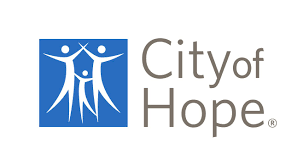The first patient with relapsed/refractory follicular lymphoma treated with PMB-CT01 in the phase 1 PMB-102 study has achieved complete remission one month after treatment, according to a news release from Pepromene Bio Inc.
“We are excited to report that a patient with relapsed or refractory follicular lymphoma has achieved complete remission after treatment with PMB-CT01, bringing the total to seven patients-all achieving a 100% complete response rate with durable responses and a manageable safety profile,” Dr. Elizabeth Budde, the trial’s lead principal investigator and associate professor of hematology at City of Hope, in Duarte, California, said in the news release.
She continued, “Notably, this patient had previously undergone seven prior lines of therapy including chemoimmunotherapies, CD19 CAR T cells, an investigational trispecific antibody and an antibody-drug conjugate [ADC]. Remarkably, the patient experienced no cytokine release syndrome or immune effector cell-associated neurotoxicity syndrome.”
Glossary:
Complete remission: disappearance of all signs of cancer after treatment.
Minimal residual disease: the small number of cancer cells that may remain after treatment.
Progression-free survival: time during and after treatment that a patient lives without cancer growing or spreading.
Overall survival: time from treatment start or diagnosis until death from any cause.
PMB-CT01 is being studied in a phase 1 clinical trial for relapsed or refractory B-cell non-Hodgkin lymphoma, registered as NCT05370430, and in a separate phase 1 trial for B-cell acute lymphoblastic leukemia, registered as NCT04690595. Early findings from studies PMB-101 and PMB-102 suggest the therapy is active and tolerable in heavily pretreated patient groups.
What is PMB-CT01 and the Phase 1 PMB-102 Study?
PMB-CT01 is a first-in-class CAR-T cell therapy that targets BAFF-R, a receptor found almost exclusively on B cells and thought to be essential for their survival. Because BAFF-R is rarely lost during cancer progression, therapies targeting it may reduce the chance of tumor escape.
In the phase 1 trial, researchers are evaluating the safety and ideal dose of BAFFR-CAR T cells — immune cells taken from the patient, modified in a lab to target a protein called BAFFR on cancer cells, and then returned to the body, according to the study record on clinicaltrials.gov. The goal is that these engineered cells will help the immune system recognize and destroy cancer more effectively, as per study authors.
To join the study, participants must be 18 or older, provide informed consent, and have an ECOG performance status of 0 (fully active) to 2 (unable to do work activities). They must have confirmed B-cell non-Hodgkin lymphoma — specifically large B-cell, mantle cell or follicular/marginal zone types — with BAFF-R expression and measurable disease. Prior CAR-T cell therapy is allowed if it occurred at least three months ago and CD19 CAR T-cells are under 5%. Participants must meet organ function and lab criteria, test negative for active HIV, hepatitis B or C (or have undetectable levels) and use birth control if of childbearing potential.
Exclusions include recent stem cell transplant, current steroid or immunosuppressant use, cardiac lymphoma, or urgent need for treatment. Also excluded are people with certain autoimmune, cardiac, neurologic, or infectious conditions, active CNS lymphoma, recent cancers unless treated and in remission for three or more years, pregnancy or breastfeeding and those with safety or compliance concerns per the investigator.
The primary goals are to assess the safety of treatment and determine the maximum tolerated dose. Secondary measures include response to treatment, minimal residual disease, B cell levels, progression-free survival and overall survival.
“Most of the PMB-102 trial participants relapsed after CD19 CAR T therapy and/or presented with CD19 negative tumors. PMB-CT01 could present a viable alternative option for patients facing this challenging scenario,” Hazel Cheng, COO of PMB, said in the news release. “We are deeply committed to the development of this first-in-class BAFFR CAR T therapy and are excited to advance our study into a multi-site expansion phase that will include relapsed or refractory mantle cell lymphoma, diffuse large B-cell lymphoma and follicular lymphoma patients.”
For more news on cancer updates, research and education, don’t forget to subscribe to CURE®’s newsletters here.






